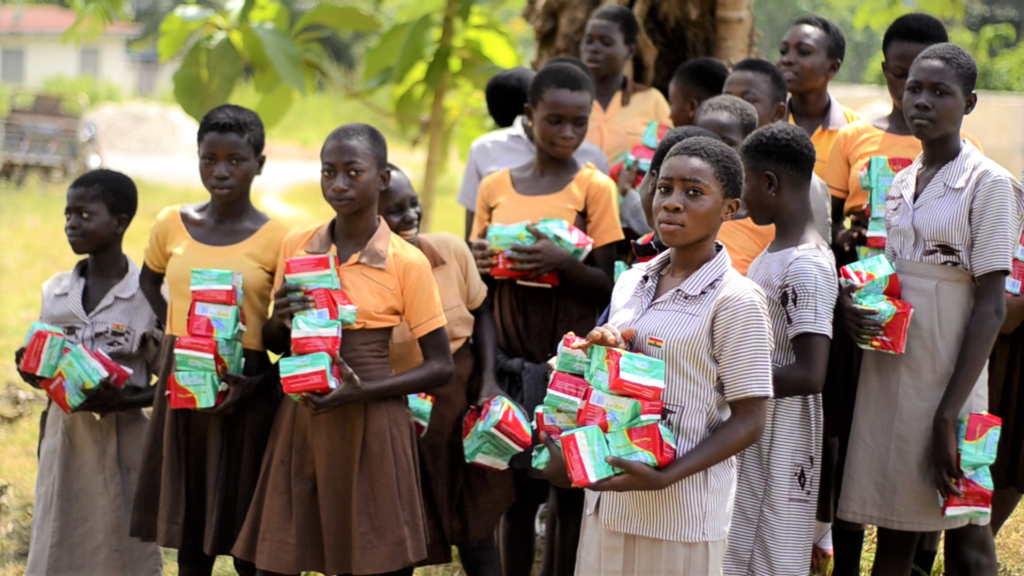Dear Reader,
My mentor has a saying, that; “Always do good, it might not replicate immediately but regardless do good” and so anytime I wrote an article for him, he would use this to buttress his point and I’d end up not taking payment. Now a year ago, my younger mind might not have understood the real implications of his sayings but nonetheless, I still paid heed to them with hope that my time would come.
If you’re familiar with politics and governance, it is always intimated that governments exist to protect citizens, their livelihoods and create opportunities to enhance the standards of living of its people and so, it literally means that government’s “do good” to their citizenry despite their backgrounds, gender, political affiliations or views on certain national issues. But wait, what then happens if the government is “failing” in its mandate or unable to deliver on promises made, then can we say things are all but for worse?
Where there is smoke there will always be fire and that is the stark reality that many young Ghanaian girls are going to face with the introduction of the 15% VAT if the 2023 National Budget is approved by parliament. But dear reader, what then is the main problem that this article seeks to address? Let’s take a quick trip down memory lane.
In the year 2010, the United Nations rolled out the Sustainable Development Goal Agenda for 2023 as a tool to which world leaders were committed to achieving 3 main objectives including the eradication of extreme poverty and hunger, achieving universal basic education and promoting gender equality.
This project with 17 Goals were designed to take off from the Millennium Development Goals. The MDG 3 was dedicated to achieving gender equality and empowerment of women, today that translates into SDG 3 and SDG 5 which touch on achieving good health and well-being of persons as well as Gender Equality.
In our part of the world today, great strides are being made towards improving the state of healthcare and creating better opportunities for women and girls. This clearly is a start-up for this gender which has continuously suffered the brunt of the harsh but male-dominated African Societal complex. However, one simple and yet largely unspoken phenomenon especially concerning females, is the issue of menstruation
and difficulties women and girls face in getting access to sanitary items during such times, including sanitary towels, pads, tampons, and the like. The large part of this article will be dedicated to advocating for a cut in taxes for sanitary pads, showing why it is in the interest of government to do so and explaining the great impact it will have on the lives of so many young girls and women especially those
from rural and deprived communities.
Undoubtedly, the menstrual cycle is a natural phenomenon or if I should say, process that occurs in the life of every female; of course, until menopause. No woman or girl should, in every natural sense, ever have to go through any hurdles or difficulties in an attempt to manage herself during her period or improve her sanitary conditions during this phase of her life.
Unfortunately, the reality on the ground is that a lot of girls especially those in rural communities, find it very hard to cope during this particular period of their lives and as a result, have to temporarily stop schooling until they are done with their period. Data from a study conducted in communities such as Zabzugu and North Dayi Districts in Ghana, found out that about 95% of girls in the region missed school
due to menstruation. The problem is even worse as there’s growing stigma associated with girls in their period. Stories and life experiences show that girls usually face scorn and are mocked when they unfortunately stain themselves during their period.
The crux of this problem has a stark relation to the affordability of sanitary pads and unfortunately, the inability of persons to afford them due to the wide poverty gap the nation faces. The question of affordability arises from the price at which sanitary pads are pegged which is largely due to the taxes that apply to them. What is disturbing is the fact that sanitary pads are considered a “luxury item” by the Ghana Revenue Authority harmonized system and as a result, have a 20% luxury tax applying to it. This coupled with VAT of 12.5% contributes to sanitary pads costing as high as GHȼ12 in a country where 3.4 million Ghanaians are in extreme poverty (source statista.com).
So, let us rewind on the issues today and why parliament of Ghana has an even greater responsibility to ask for a possible removal of all taxes on sanitary pads. Today, government spokespersons will blame the recent economic crisis that the Ghanaian economy is engulfed in resulting into inflation from factors like the Russia-Ukraine conflict, the recovery from Covid-19 and other domestic factors. These, dear reader, are contributory as well to the high cost in sanitary pads today due to rising costs in production especially for local brands like Softcare or Yazz.
I must at this point, applaud all initiatives, individuals and organisations that are dedicated to healthy menstrual management and have through their efforts, continuously spread the gospel for not only reduction, but total removal of these taxes on such sanitary items. Their concerted efforts resulted in the government through the Vice President Mahamadu Bawumia, promising to scrap of the 20% luxury tax
on imported sanitary pads in the run up to the 2020 elections.
Elections have ended, and it has been two years and yet there’s no apparent sign from the government that it will steadily embark on the fulfillment of this promise. I must submit respectfully that people need to understand the urgency to fix this and though there have been efforts to do so, it still feels like more should be done. There is a need for more advocacy on this issue. The worrying part is the fact that women make a larger percentage of the country as figures from the recent 2021 National Population and Housing Census, estimate the total number of women to be 15.6 million in Ghana; a clear indication of how important this cause should be since it affects the very fibre of the Ghanaian society which are largely women who are unfortunately suffering in silence.

Girls in rural communities who are unable to afford sanitary pads resort to all kinds of materials including the use of newspapers and towels which are not entirely safe and could result in health complications for young girls. School girls cannot bear the brunt of beratement and face the social stigmas associated with talking on menstrual hygiene. As a result, they would rather prefer to stay at home during their period leading to a short truncation in their education. This is clearly not the best way to go.
Non-Governmental Organisations and agencies have tried their best to reach out but the million-dollar question that still remains is “how many of these philanthropies have reached the farthest parts of Ghana?" There is still a lot of work to be done but first, it requires the great step of government upholding its promise to scrap out the “luxury” tax on an item which ironically is an essential or a necessary good.
Countries such as the United Kingdom, Canada and in Africa Kenya, have zero tax on sanitary products whilst in Scotland, sanitary pads and tampons are free for all women through a bill passed by the Scottish Parliament in 2020, putting themselves as the first country to do so.
Ghana, clearly has many good examples from which it can take precedents but the first step to achieving this should be more national dialogue on the issue. Women and girls should not feel shy in anyway for something which is clearly part of their biological makeup and this emphasises a need for more education on the menstrual cycle and its related topics. In that way, we do not only curb or attempt to make a good effort to curb the problem of mocking, teasing and beratement young girls feel when they stain themselves, but raise a new generation who would be taught to rather extend kindness and help to these young ones in such pivotal periods in their life.
Once all this is done, we do not only fast forward to achieving SDG 3 which promotes good health, but centre our focus to achieving SDG 5 which seeks to achieve better gender equality for women. Ghana and many African nations can thus truly make a mark for themselves and their citizens with the great progress they could have towards the achievement of these goals.
The other angle that must be looked at is encouraging the local production of menstrual materials like sanitary pads and tampons. One of the ways that I would opine despite reading the 2023 budget is for tax exemptions for such companies producing such essentials.
At the end of the day, the goal is not just to win solidarity and support, but connect with that one young girl out there who cannot afford sanitary pads and has to skip class to avoid the beratement and stigmas that menstrual cycle comes with. There is a need to better ground and consolidate the future of young girls in Ghana, Africa and across the world. Removal of the taxes would not just create affordability
but a rare opportunity for persons from different walks of life to get them at any time, at any place. No lady or young girl should be made to feel the brunt of such taxes on products. I’d wish to call out on more agencies and platforms to get the necessary backing that is needed to help push out a collective agenda on the removal of these taxes.
It would be most prudent that the governments through the Ministry of Gender and Social Welfare takes up the cause so that we can protect our young women and girls and ensure that they get better in society. In the end, we, through education on menstruation, healthy menstrual hygiene management and the elimination of the import tax on menstruation materials, provide a roadmap to end the struggles girls face in different parts of the world.

Chleo-Patra Awonpomi Azantilow, chleopatraazantilow94@gmail.com,
KNUST, FACULTY OF LAW
LL.B 3
Latest Stories
-
I want to focus more on my education – Chidimma Adetshina quits pageantry
2 hours -
Priest replaced after Sabrina Carpenter shoots music video in his church
2 hours -
Duct-taped banana artwork sells for $6.2m in NYC
2 hours -
Arrest warrants issued for Netanyahu, Gallant and Hamas commander over alleged war crimes
2 hours -
Actors Jonathan Majors and Meagan Good are engaged
3 hours -
Expired rice saga: A ‘best before date’ can be extended – Food and Agriculture Engineer
3 hours -
Why I rejected Range Rover gift from a man – Tiwa Savage
3 hours -
KNUST Engineering College honours Telecel Ghana CEO at Alumni Excellence Awards
3 hours -
Postecoglou backs Bentancur appeal after ‘mistake’
3 hours -
#Manifesto debate: NDC to enact and pass National Climate Law – Prof Klutse
4 hours -
‘Everything a manager could wish for’ – Guardiola signs new deal
4 hours -
TEWU suspends strike after NLC directive, urges swift resolution of grievances
4 hours -
Netflix debuts Grain Media’s explosive film
4 hours -
‘Expired’ rice scandal: FDA is complicit; top officials must be fired – Ablakwa
5 hours -
#TheManifestoDebate: We’ll provide potable water, expand water distribution network – NDC
5 hours

